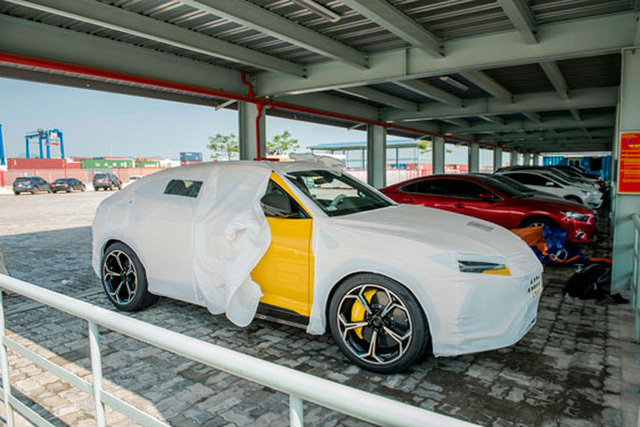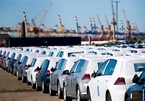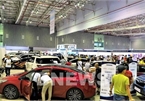The Ministry of Finance (MOF) has released a draft decree on the preferential import tariff within the framework of EVFTA, to be applied in 2020-2022, which shows tariff cuts of 14.2-15.6 percent on cars.

Under the draft decree, the tariff on sedans with cylinder capacity of 1,000-1,500 cc, 1,500-1,800cc, and 2,000-2,500 cc would decrease from 70.9 percent to 63.8 percent in 2021 and to 56.7 percent in 2022.
As for sedans with cylinder capacity of over 2,500 cc, the tariff would be 60.5 percent and 53.8 percent, respectively, by 2021 and 2022, instead of the current 67.2 percent.
The tariffs would be 62.4 percent and 54.6 percent, respectively, for sedans with cylinder capacity of 3,000 cc or more.
The import tariff cut will reduce prices of car imports from the EU in upcoming years. A car dealer estimates that a car with cylinder capacity of over 2,500 cc which has the taxable price of VND2 billion would see a price cut of VND150 million a year, once the tariff decreases by 7.8 percent in the next two years.
| The import tariff on European car imports will be decreasing gradually by 7 percent per annum. It will take at least five years to see considerable price decreases. |
Besides, the lower tariffs will also help reduce the amounts of taxes that buyers have to pay for luxury tax and VAT.
Do Nguyen Vuong, CEO of Volkswagen Vietnam, said European cars have high quality and safety, but they sell slowly because of high prices.
If the prices go down under EVFTA, European cars will be in high demand. Customers will choose European imports instead of domestically made cars or ASEAN imports.
However, Vietnamese will have to wait a long time to buy European imports at reasonable prices because of the long tariff cut roadmap stipulated by EVFTA.
Vuong believes that the 15 percent tariff cut in the first two months of the EVFTA implementation won’t have much influence on car prices. The prices will only decrease considerably after five years.
Doan Hieu Trung, CEO of Regal, said car imports have many kinds of taxes, including a luxury tax of 35-150 percent, VAT of 10 percent, vehicle registration tax of 10-12 percent and corporate income tax of 22 percent.
The taxes, plus the high fee for car number plate registration, drives up prices. The reduction of one kind of tax won’t help car prices decrease considerably.
Moreover, Trung said, all car importers want to decrease the luxury tax, which has a strong impact on car prices.
Kim Chi

Car imports skyrocket in 2019
Vietnam imported up to 140,000 cars in 2019 worth a total USD3.16 billion, up 84% on-year, with the majority from Indonesia and Thailand.

Vietnam's automobile market sees 62 percent surge after social distancing
The sales of automobile surged 62 percent month-on-month in May following the end of social distancing measures, according to the Vietnam Automobile Manufacturers’ Association (VAMA).
 The import tariff on European car imports will be decreasing gradually by 7 percent per annum. It will take at least five years to see considerable price decreases.
The import tariff on European car imports will be decreasing gradually by 7 percent per annum. It will take at least five years to see considerable price decreases.